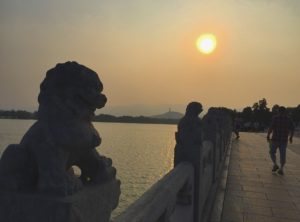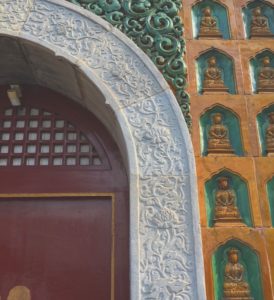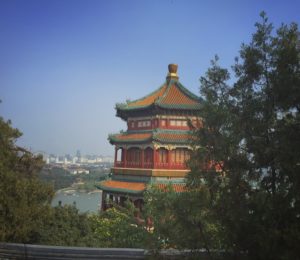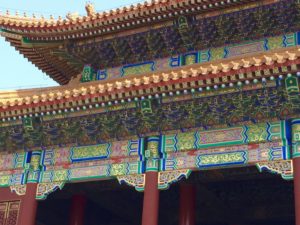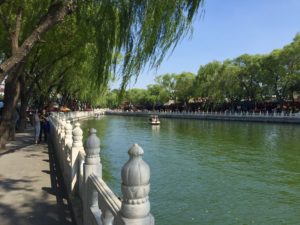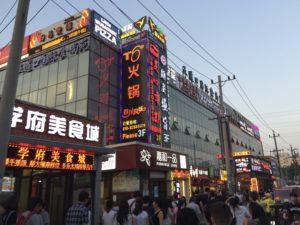The conclusion of this school week marked the conclusion of our midterm, and as a divider between the semesters’ worths of content, the program ventured to Xi’an together. Exploring a new city was a breath of fresh air, both figuratively and literally the air quality was noticeably better the moment we stepped off the sleeper train. If you haven’t started to notice a trend in my blog posts where I eat my words, maybe you’ll notice it now. I ended my previous post commenting on the severity in the divide between ancient China and modern China, but Xi’an has mastered balancing the two. Xi’an situates itself on the confluence of the Feng and Hao rivers, but also on the confluence of the China of today, the modern economic power, and the ancient, spiritual China. The two are not mutually exclusive. Xi’an was known as China’s established capital well before Beijing ever was, and is the oldest continuously inhabited city in Eastern Asia. Under the name Chang’an, the city was the eastern most stop on the Silk Road trading network, begun in the 2nd Century BC.
Even so, as we biked atop the city’s ancient city wall, the pagodas and temples were no longer the only constructions taller than we were. Rather, we circled an 8.5 mile perimeter of bright billboards and steely skyscrapers that somehow did not seem to need the protection of a fourteen hundred year old fortification.
Even so, though we browsed and haggled for good among street vendors with blinking neon signs, we were a block away from a mosque founded in the year 742. And at night, when we walked through the lanes bordered by the rising palatial architecture, the swooping roofs were illuminated by both distinctly colored LED lights as well as paper lanterns.
Even so, as we watched a performance of the Song of Everlasting Regret detailing the romance and rebellion in the life of an emperor from the year 755 AD, the stage production was not limited to the masks of ancient dramas. Instead, the theater lit up an entire mountain side with incandescent lights to mimic the night sky with stars dotting the path beneath a cable car system from which fireworks were shot towards the audience to portray a battle occurring on the platforms and pyrotechnics arising from the pond that surrounded the original stage. Somehow I don’t think the poem’s Ninth Century author envisioned the same production I saw. But it was incredible. It may have been cheesy but besides the overwhelming awe, all I could even fathom to think was that this production was the greatest metaphor for the entire history of China, not forgetting the explosive changes of the last half century, and not daring to exclude the centuries of culture preceding them.
To wrap things up, here is my weekly China travel advice:
Don’t wear white in China.
You don’t know how to use chopsticks as well as you think you do.
